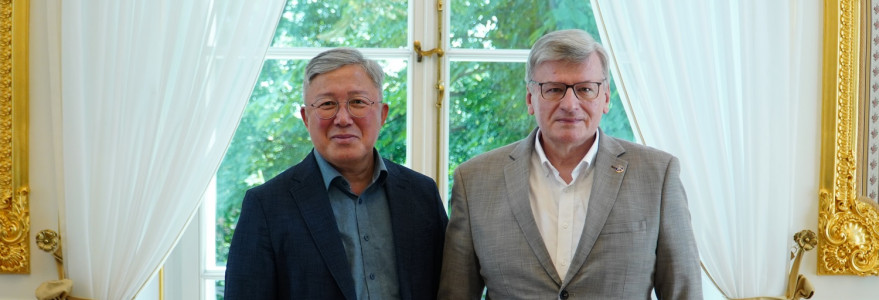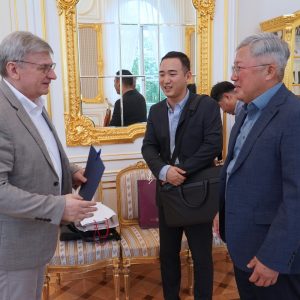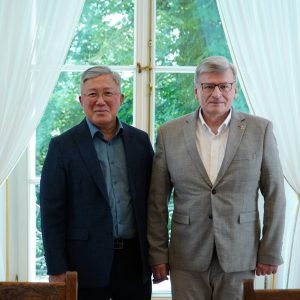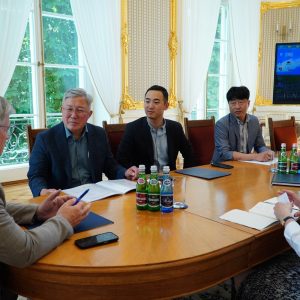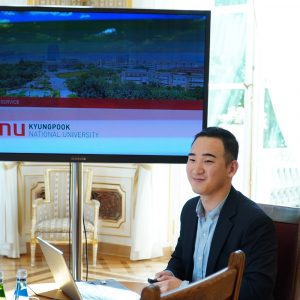On 9th July, Prof. Zygmunt Lalak, the UW Vice-Rector for Research, met with representatives of Kyungpook National University. The event aimed at fostering joint initiatives in education and research.
Kyungpook National University (KNU) was founded in 1946 in South Korea. It is attended by over 35,000 students. Further, the university employs nearly 2,500 people. In June the university announced the establishment of the KNU Global Initiative Center for Exchange, and the selection of the Global Matching Major 30 as part of its 2024 Glocal Innovation Project. Under these initiatives, the KNU aims at the comprehensive expansion of its international exchange programmes as well as providing its students with a wider choice of international experience opportunities.
The university also participates in a government scholarship programme Brain Korea 21, which aims to cultivate outstanding scholars who take the lead in responding to social changes.
The meeting, held in the Kazimierzowski Palace on the UW’s main campus, underscored the shared commitment to advancing two initiatives. The Kyungpook National University was represented by Dr In-Jung Lee, the Vice President for Research & Industry-Academia Affairs, Jae Hong An, the Team Leader from the Office of Graduate Studies, and Hyunwoo Lee, the International Program Coordinator from the Office of International Affairs. The meeting was led by Prof. Zygmunt Lalak, the UW Vice-Rector for Research. From the University of Warsaw’s side the event was also attended by representatives of the International Relations Office, and the Office for International Research and Liaison.
UW and South Korea
The University of Warsaw is dedicated to advancing the collaboration with South Korean academic institutions focused on academic mobility and research projects. The UW has partnerships with such institutions as Hankuk University of Foreign Studies, Korea University, Kyung Hee University, Kyungpook National University, Soongsil University, Chung-Ang University, Ajou University, Chonnam University, and the University of Seoul.



